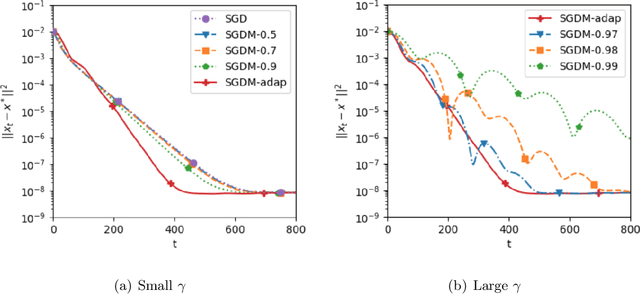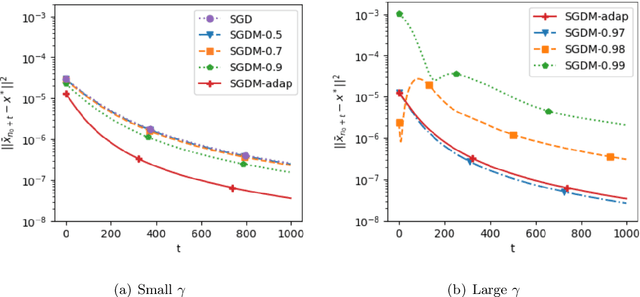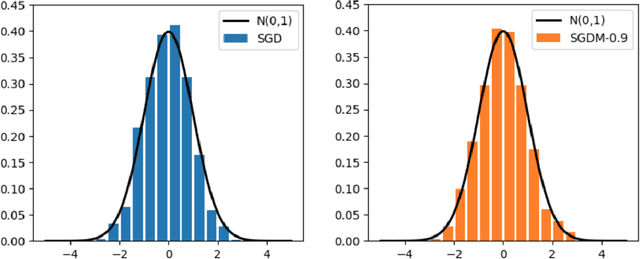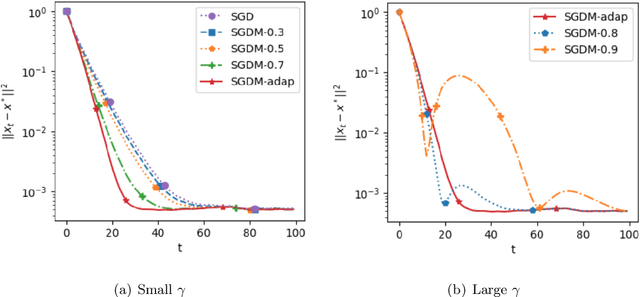Acceleration of stochastic gradient descent with momentum by averaging: finite-sample rates and asymptotic normality
Paper and Code
May 28, 2023



Stochastic gradient descent with momentum (SGDM) has been widely used in many machine learning and statistical applications. Despite the observed empirical benefits of SGDM over traditional SGD, the theoretical understanding of the role of momentum for different learning rates in the optimization process remains widely open. We analyze the finite-sample convergence rate of SGDM under the strongly convex settings and show that, with a large batch size, the mini-batch SGDM converges faster than mini-batch SGD to a neighborhood of the optimal value. Furthermore, we analyze the Polyak-averaging version of the SGDM estimator, establish its asymptotic normality, and justify its asymptotic equivalence to the averaged SGD.
 Add to Chrome
Add to Chrome Add to Firefox
Add to Firefox Add to Edge
Add to Edge